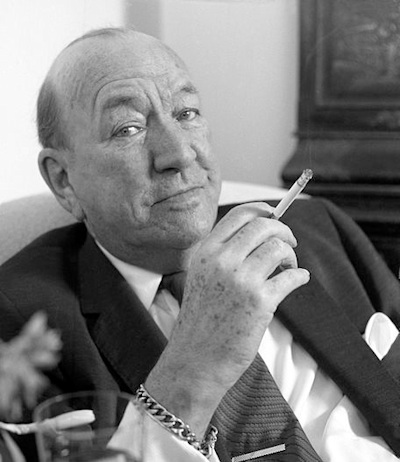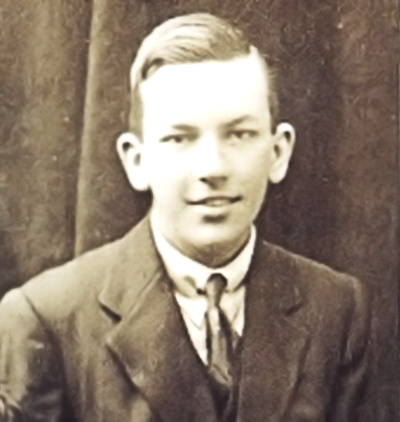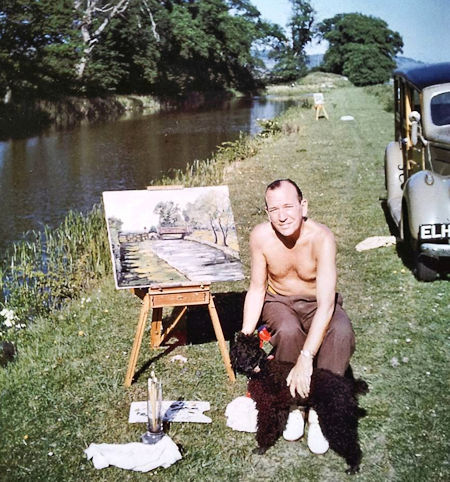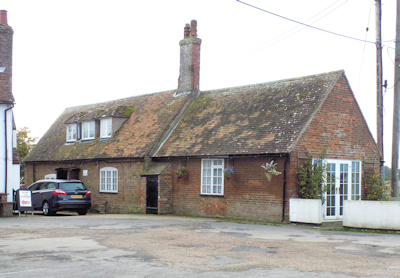Noel Coward
Romney Marsh is where Noel Coward fell in love with the English countryside and Kent in particular. In the early 1920s he and a friend stayed at Dymchurch for several weeks, exploring Romney Marsh on bicycles to find a cottage to rent. Coward also needed a place to stay where he could write. Family finances were tight and he had yet to forge his reputation as one of the countrys leading playwright s and composers.
He found a small cottage right in the heart of Romney Marsh in St Mary in the Marsh. The cottage was next to the Star Inn and opposite the St Mary the Virgin medieaval church. Coward woud sit in the churchyard with his back against a gravestone and write.
During his stay on the Marsh, Coward found a house in nearby Aldington, which he bought and lived in for many years. There were many productive periods of writing and composing. The war interrupted his work and his property was requisitioned by the Army and Coward moved to St Margarets Bay near Dover, where he continued to write and compose.
After the war he returned to Aldington where he lived until 1956 before moving to Jamaica, where he died in 1973.
While in St Mary in the Marsh Coward got to know Edith Nesbit, who was a neighbour, best known for writing The Railway Children, she was one of Coward's literary idols. By his bed, when he died, was a copy of her book 'The Enchanted Castle'.
Noel Coward's Life
Sir Noël Peirce Coward (16 December 1899 – 26 March 1973) was an English playwright, composer, director, actor and singer, known for his wit, flamboyance, and what Time magazine called "a sense of personal style, a combination of cheek and chic, pose and poise".

Noel Coward
Born in Teddington, a suburb of London, Coward attended a dance academy in London as a child, making his professional stage début at the age of eleven. As a teenager he was introduced into the high society in which most of his plays would be set. Coward achieved enduring success as a playwright, publishing more than 50 plays from his teens onwards. Many of his works, such as Hay Fever, Private Lives, Design for Living, Present Laughter and Blithe Spirit, have remained in the regular theatre repertoire.
He composed hundreds of songs, in addition to well over a dozen musical theatre works (including the operetta Bitter Sweet and comic revues), poetry, several volumes of short stories, the novel Pomp and Circumstance, and a three-volume autobiography. Coward's stage and film acting and directing career spanned six decades, during which he starred in many of his own works.
At the outbreak of World War II, Coward volunteered for war work, running the British propaganda office in Paris. He also worked with the Secret Service, seeking to use his influence to persuade the American public and government to help Britain.
Coward won an Academy Honorary Award in 1943 for his naval film drama, In Which We Serve, and was knighted in 1969. In the 1950s he achieved fresh success as a cabaret performer, performing his own songs, such as "Mad Dogs and Englishmen", "London Pride" and "I Went to a Marvellous Party".
His plays and songs achieved new popularity in the 1960s and 1970s, and his work and style continue to influence popular culture. Coward did not publicly acknowledge his homosexuality, but it was discussed candidly after his death by biographers including Graham Payn, his long-time partner, and in Coward's diaries and letters, published posthumously. The former Albery Theatre (originally the New Theatre) in London was renamed the Noël Coward Theatre in his honour in 2006.

Noel Coward in his teens

Noel Coward by the Royal Military Canal c1930

The cottage at St Mary in the Marsh where
Noel Coward lived for a while


















